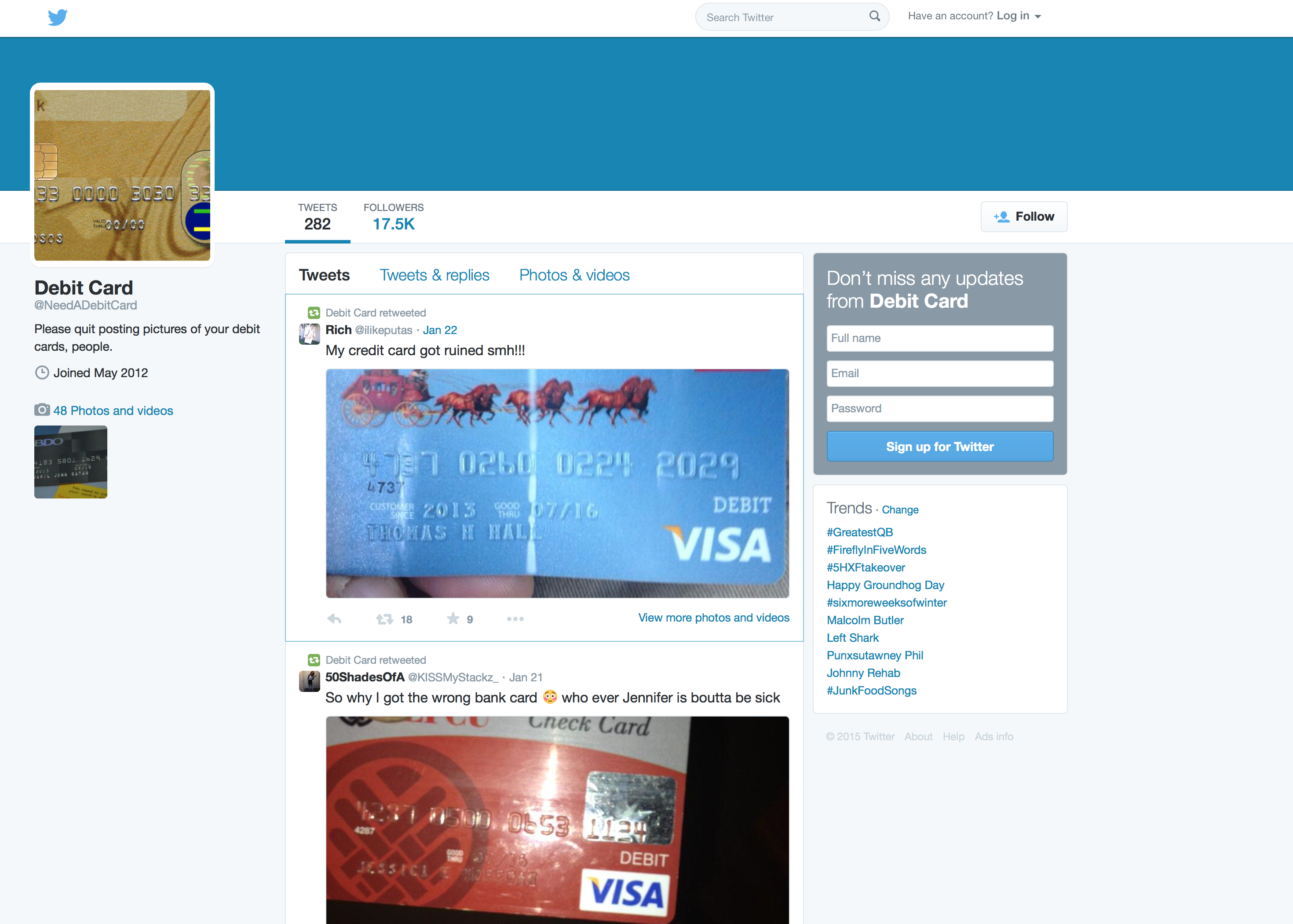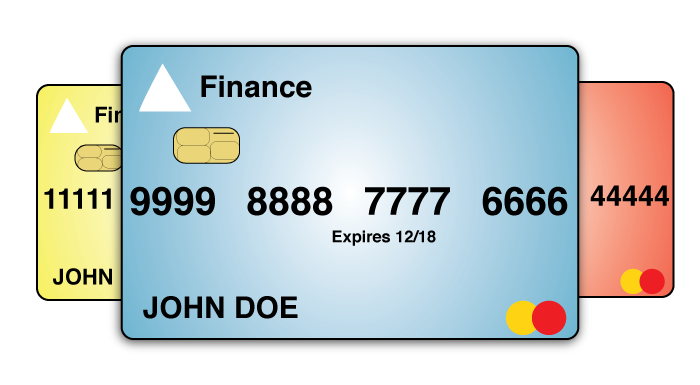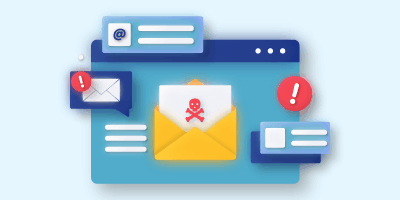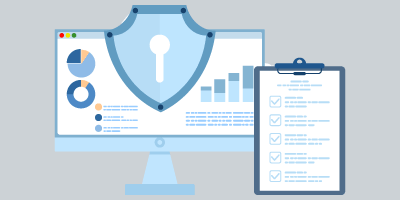The topic of credit card fraud seems to be an age old discussion that gets revisited every time there is a breach. Ideally, those working in the information security field would like to think that there would be a strong public security culture surrounding credit cards, but unfortunately to the average consumer, that is not the case.
With hundreds of social media outlets, the threat of credit card fraud has become greater and greater. A big reason for this is mainly due to the fact that people are just unaware of the possible dangers that lurk on the internet. Many of these dangers can be prevented by having a general understanding of online security.
Online Security Don’ts!
One example of this, is people sharing pictures of their credit cards on social media sites. One specific instance, there is a twitter page and handle, NeedADebitCard, that retweets posted images of people’s credit cards that their owners share.
As humorous as this Twitter page seems, the sad truth is that people are not taking the necessary steps to protect their credit card data. Regardless of the fact that most of these cards have EMV chip security, the danger is if a hacker gets his hands on a card number, information could potentially be compromised without any way to mitigate the threat.
This unfortunately shows that people still don’t have a real understanding of security best practices or understand the severity of their actions on social media. It is key to remind people to treat personal information as securely as cash in the bank. Only access it when needed (encrypted) and keep it locked up at all other times.
A large challenge facing businesses is the ability to properly protect confidential information. GraVoc can assist at all levels of program development, from helping construct an information security policy, improvement of existing policies, and training employees on adherence to information security best practices. GraVoc has performed and documented training exercises for employees and board members on a variety of information security topics. For more information on how GraVoc can help prepare your business from a potential breach, click the link below!
8 Tips to reduce credit card fraud online:
-DO NOT post a picture of your credit or debit card online, no matter how pretty it is!
-Do not share any bank account info on public or private forums or message boards.
-Always encrypt emails that contain sensitive information and avoid sending full bank account or credit card numbers (if you must send a number, use last four digits).
-Never give out your credit card number without knowing why.
-After using a public computer, make sure that you are logged off completely.
-Do not cache credentials on any computer that is not personal or trusted.
-When shopping online, make sure you are using a trusted website. This can be identified by links to external validation sites, such as McAfee SECURE, Comodo Secure, BBB, or Paypal.
-Do not click links or respond to emails that seem suspicious. Users can check the safety of a link by “hovering” over it to ensure that the site a link is pointing to is the same as the site to which a user will be directed.
Related articles
Business Email Compromise: Top BEC Tactics & How to Protect Against Them
We take a look at Business Email Compromise, including common BEC tactics and what your business can do to protect against them.
FFIEC CAT Sunset: Why the CRI Profile is a Strong Alternative
With the FFIEC CAT sunset approaching, we explore why the CRI Profile is a strong alternative to the CAT for financial institutions!
FTC Safeguards Rule Compliance for Auto Dealerships
We’ll go over the FTC Safeguards Rule, what it requires, and how a managed service provider can help auto dealerships stay compliant.





